#toshimichi okubo
Explore tagged Tumblr posts
Text
🏯✨ Ready to take on Chapter 2 of Rise of the Ronin? Check out our detailed blog post on the "Decisions" mission! 🎮💪 Find out how to communicate with key characters, tackle side quests, and execute your strategy like a true Ronin. Let’s embark on this adventure together!
#Rise Of The Ronin#Decisions Mission#Chapter 2 Guide#Video Game Walkthrough#Edo Region#Samurai Adventure#Ryoma Sakamoto#Choshu Clan#Kogoro Katsuru#Game Strategies#Old Friends Quest#Toshimichi Okubo#Mission Objectives#Gaming Tips#Action Adventure#Game Guides#Public Order Missions#Bonding With Allies#Samurai Game#Game Progression#Genzui Kusaka#Teamwork Strategies#Game Objectives#Stay Agile#Decoy Actions#Game Walkthrough#Gaming Community#Action Games#Japanese History#Video Game Community
1 note
·
View note
Text
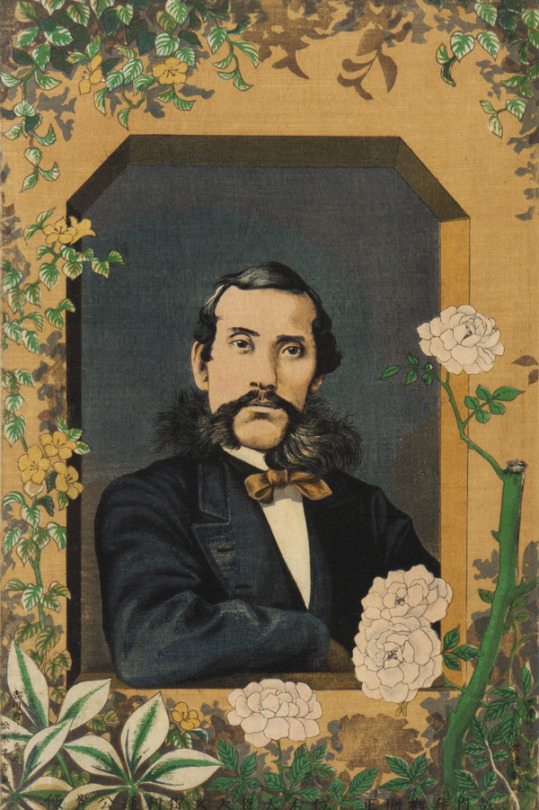
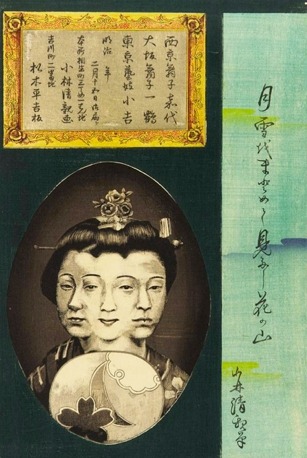
“Portrait Of Okubo Toshimichi” / “Three geisha: Kayo of Kyoto, Hitotsuru of Osaka, and Kokichi of Tokyo”, Kobayashi Kiyochika. Woodblock print, ca. 1878
#japanese art#japanese woodblock#kobayashi kiyochika#woodblock print#meiji art#original art#aes#i found these from my art history class and they're kinda slick as fuck ngl
5 notes
·
View notes
Text
JAPAN: A CASE STUDY
If the unending stream of immigrants from countries south of the border, from Central and South America, is mainly caused by economic reasons – where people are seeking better material lives – then what can be done about it? The last posting suggested a program of investing in those countries with the attempt to turn those economies around. The aim would be to modernize those economies and to demotivate their people from migrating to the United States.
That posting suggested that a view of the history of Japan might give one insights into what a traditional country should do since that nation was traditional – in the 1800s – and today is a vibrant industrial/postindustrial nation. Relying on the reporting of David Landes,[1] this review has established that the Japanese cultural character played a central role.
That is, they enjoyed strong domestic institutions such as family and community life which led to a sense of self-confidence. In turn, that confidence made it non-threatening for them to seek information and contacts with the world’s industrial nations of that time. With that information they were instructed about what to do and not do on their path toward modernization.
And so, they did. Here are some of the steps they initiated:
Hiring experts and technicians from industrial nations
Sent Japanese agents to industrial nations – in Europe and America – to garner whatever they could from their eyewitness experiences
Conducted extensive comparative analysis of the information and insights they acquired
Extended their research to military information – first heavily relying on the French model and then, after the Franco-Prussian War (1870-1871), the German model
Abandonment of feudalist form of governance (the rule of local lords) and adoption of a central form of governance
Adopted British style trade policies as modeled on the Navigation Acts in England that in earlier phases of industrialization instituted protective policies that were only lightened after their industry was soundly established
When their industry was established, again like Britain, instituted a more laissez-faire model
Under the leadership of Okubo Toshimichi, instilled a more disciplined, hardworking orientation to work and development – opting for a German orientation
And by utilizing comparative advantage opportunities, began efforts with light industrial products, small scale efforts such as cotton mills, wooden waterwheels, coal mining
All of these elements or steps led from small production to big production over long periods of developmental processes. Landes summarizes these processes as follows:
But the long haul to parity needed not so much money as people – people of imagination and initiative, people who understood economies of scale, who knew not only production methods and machinery but also organization and what we now call software. The capital would follow and grow.
The Japanese determined to go beyond consumer goods. If they were to have a modern economy, they had to master the heavy work: to build machines and engines, ships and locomotives, railroads and ports and shipyards. The government played a critical role here, financing reconnaissance abroad, bringing in foreign experts, building installations, and subsidizing commercial ventures. But more important were the talent and determination of Japanese patriots, ready to change careers in the national cause, and the quality of Japanese workers, especially artisans, with skills honed and attitudes shaped by close teamwork and supervision in craft shops.[2]
Landes characterizes all this as the Japanese version of Weber’s Protestant ethic. That would be their form of a culturally based human capital foundation.
Given the initial question – can Latin countries south of the American border develop viable, modern economies? – does the Japanese example answer or help answer that question? The opinion here is that it does not or does not very much but does give one insight as to what is involved. For one thing, no one is arguing that those Latin countries become industrial powerhouses, but that they become viable economies capable of providing employment and opportunities for the bulk of their populations.
With that more modest aim, the blogger believes the Japanese example can offer some insight. And to begin with is a recognition that culture indeed does matter and that those in charge of any policy changes in this field need to be sensitive and knowledgeable about the cultural factors involved.
The path to the ideal, whatever that is, will be complex and involved. As with the Japanese, having the productive motives that the Japanese exhibited, the necessary capital will follow. And a bit of advice: the efforts should begin with those who took it upon themselves to make the trip to the US – they have demonstrated gumption, bravery, and energy to improve their conditions. These are qualities a nation can exploit – even hold as essential – in any attempt to improve their economic standing.
[1] David Landes, “Culture Makes Almost All the Difference,” in Culture Matters: How Values Shape Human Progress, eds. Lawrence E. Harrison and Samuel P. Huntington (New York, NY: Basic Books), 2-13. Factual claims of this posting based on this source.
[2] Ibid., 9-10.
#Japan#Latin American countries#immigration#industrialization#culture#Japanese development#civics education#social studies
0 notes
Text
幕末維新 天翔ける恋 by Voltage Inc (Party)
Title: Bakumatsu Ishin Tensho Keru Koi
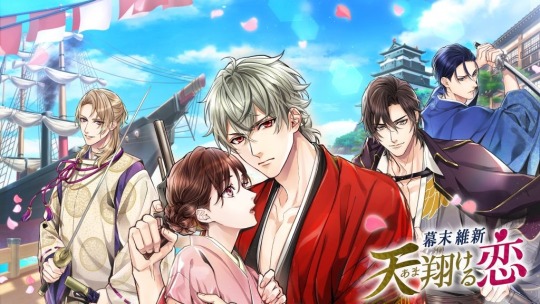
|
Finally, is Now Available!
➡ Google Play / App Store (Release date: January 19, 2021)
|




・Story・
The stage is the turbulent era "Bakumatsu".
You met the daughter of a tailor with a foreign rash
He was a "man who creates a new era".
You who run a tailor in Kyoto and secretly make a prototype while longing for a foreign dress.
However, since the arrival of the Black Ships
Even in the city of Kyoto, the momentum of expulsion from foreign countries has begun to increase.
One day, I dropped a hidden photo of a foreign country.
"...A country-seller who sold his heart to a stranger"
Found by a radical ronin,
What appeared in front of you when the sword was struck...
The love with him who put his life to his ambition begins now.
|
Relationship Chart

|
Main Characters
Ryoma Sakamoto CV: Yuki Kaji

|
Shinsaku Takasugi CV: Tomoaki Maeno

|
Toshimichi Okubo CV: Yuichiro Umehara

|
Yoshinobu Tokugawa CV: Yoshimasa Hosoya

|
Soji Okita CV: Junichi Toki

|
Sanjo Sanetomi CV: Shinnosuke Tachibana

|
Itagaki Taisuke CV: Yusho Uemura

|
Kogoro Katsura CV: Yusuke Kobayashi

|
Takamori Saigo CV: Daiki Hamano

|
Katsu Kaishu CV: Chikahiro Kobayashi

|
Toshizo Hijikata CV: Shintaro Asanuma

|
Tomomi Iwakura CV: Emi Ogata

|
Delivery Date: January 19, 2021
Planned Models: iOS / Android
Main Illustrator: Saya Shirosaki
©Voltage / Party
#幕末維新 天翔ける恋#Bakumatsu Ishin Tensho Keru Koi#Voltage Inc#Party#Ryoma Sakamoto#Shinsaku Takasugi#Toshimichi Okubo#Yoshinobu Tokugawa#Soji Okita#Sanjo Sanetomi#Itagaki Taisuke#Kogoro Katsura#Takamori Saigo#Katsu Kaishu#Toshizo Hijikata#Tomomi Iwakura
84 notes
·
View notes
Text

Sketch 5/5 ! Toshimichi Okubo from Destined to Love! 💜
Woah I rarely get asked to draw DTL so its a pleasant surprise ! (*´∇`*)
anddd that is the last headshot sketches for the first 5 that preordered from my store for this batch ٩(ˊᗜˋ*)و ! Thank you 🥰
#otome game#fan art#ikemen series#otome#rierrusketch#ikemen bakumatsu#destined to love#dtl#Toshimichi Okubo
42 notes
·
View notes
Text
Destined to Love, by Cybird.


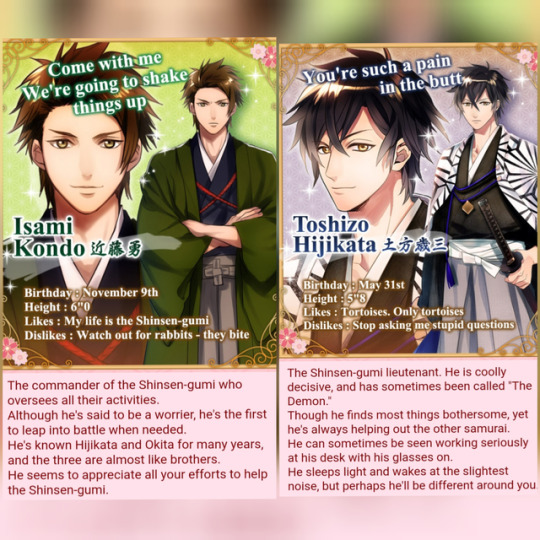
I just started to play this game and I'm already liking a lot! 💗
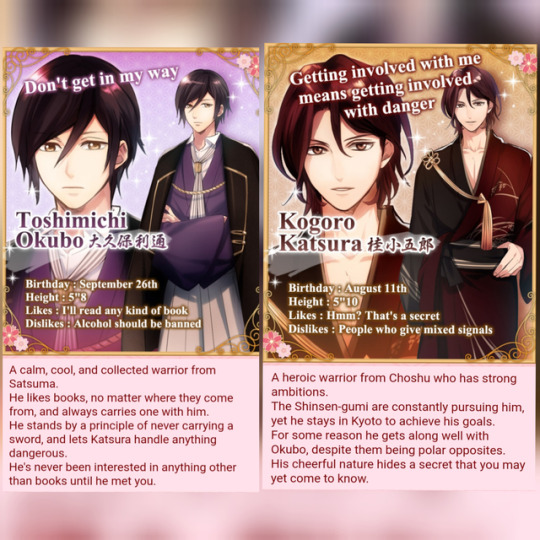
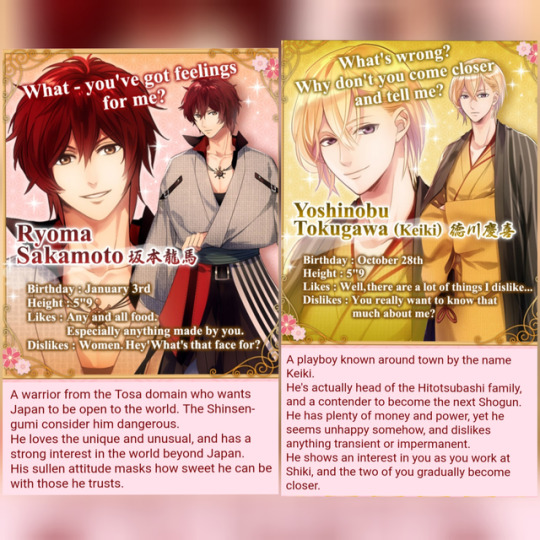
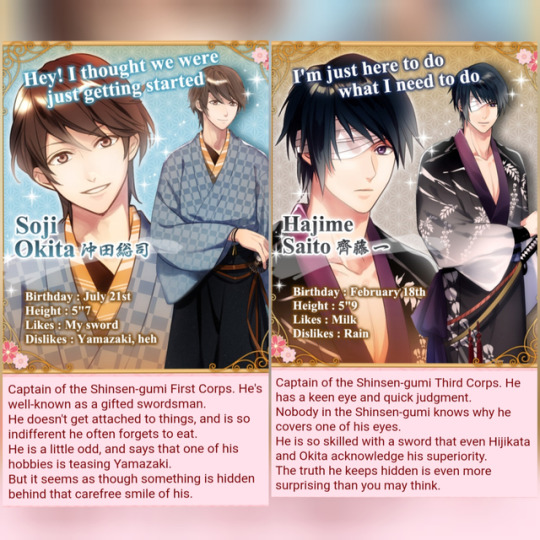
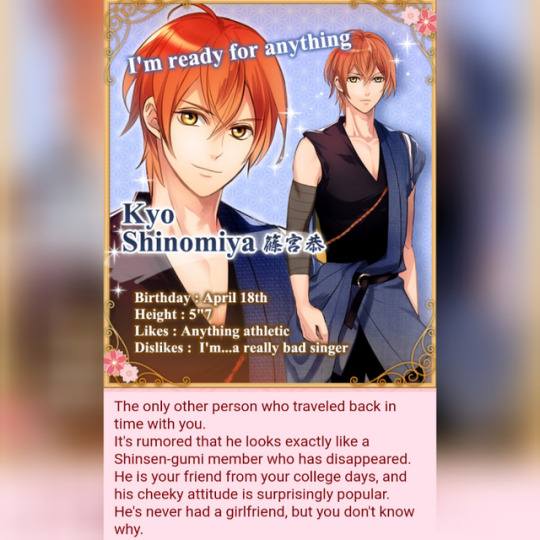
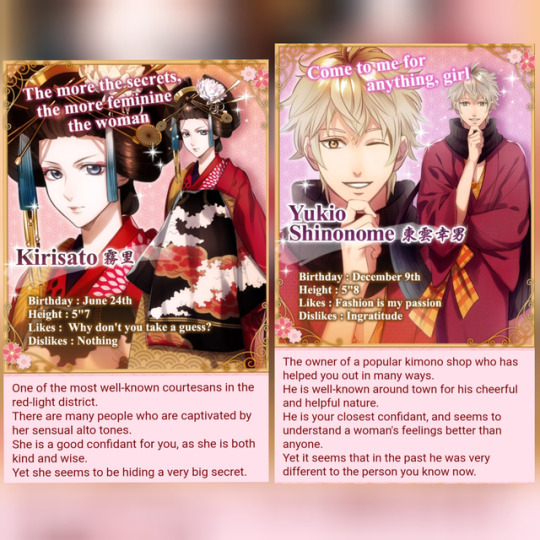
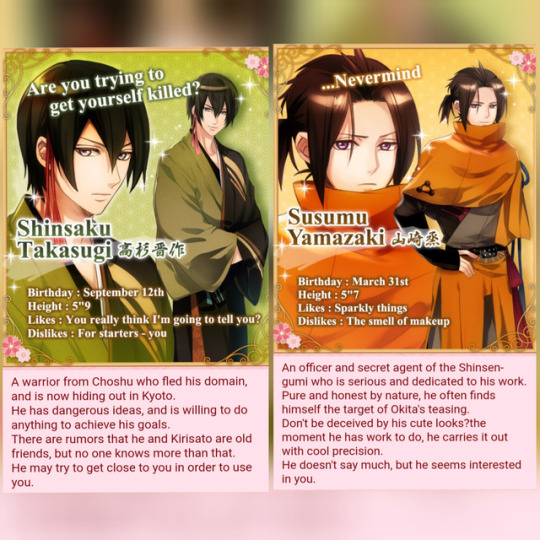
#otome game#cybird#destined to love#ikemen samurai romances#isami kondo#hijikata toshizo#soji okita#hajime saito#toshimichi okubo#kogoro katsura#ryoma sakamoto#yoshinobu tokugawa#shinzaku takasugi#kyo shinomyia#kirisato#yukio shinonome
60 notes
·
View notes
Text
都会の緑
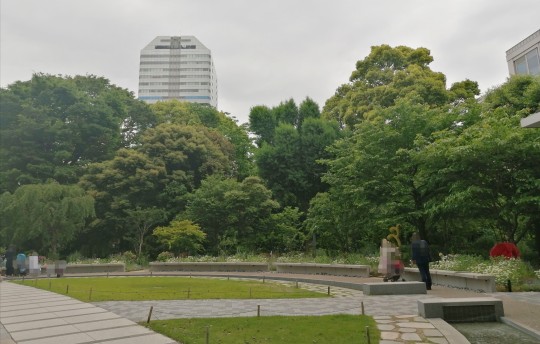
2022.5.15
赤坂プリンスクラシックハウスの裏側に向かうと「芽生えの庭」と名付けられた空間があり、犬と一緒に寛いでいる人や、水遊びをするちびっこもいました。
周辺は本当に緑がいっぱいで、遊歩道も作られ、そのまま近所の清水谷公園を含む森と繋がっています。
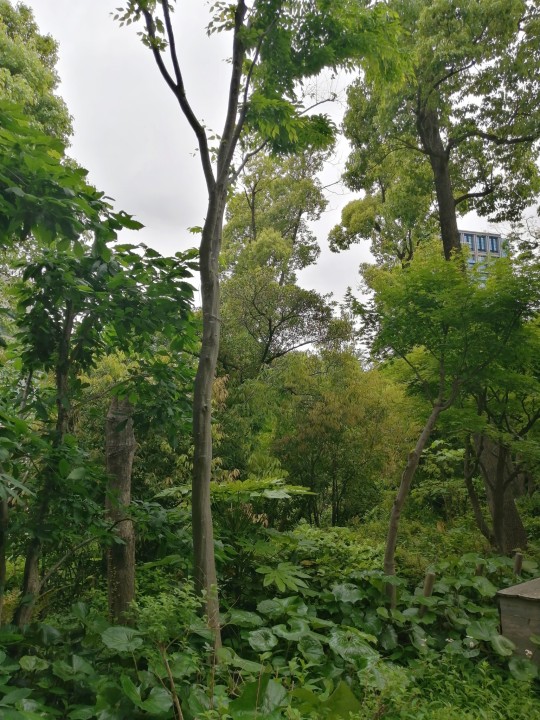
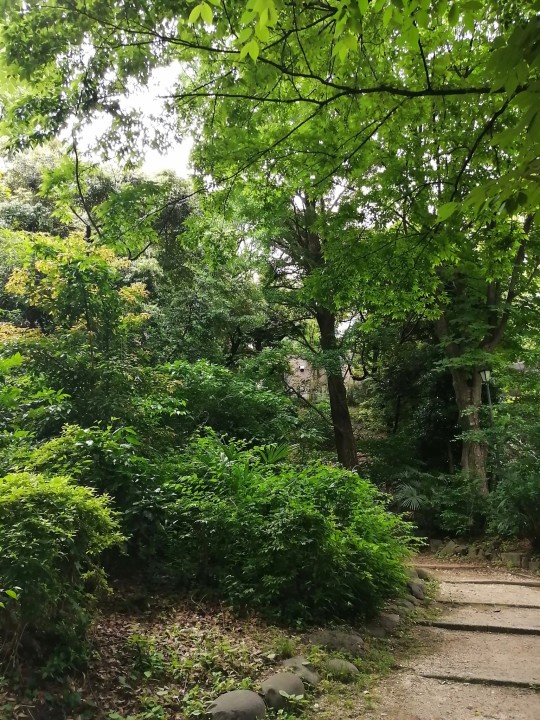
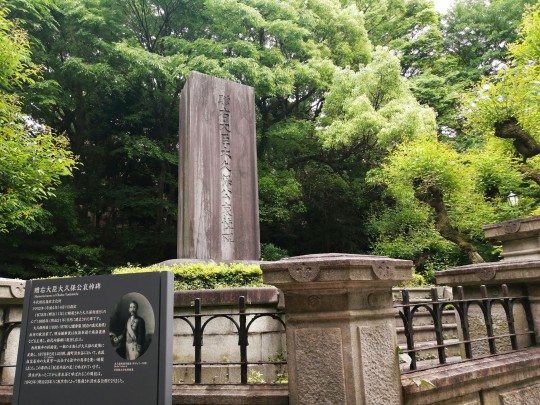
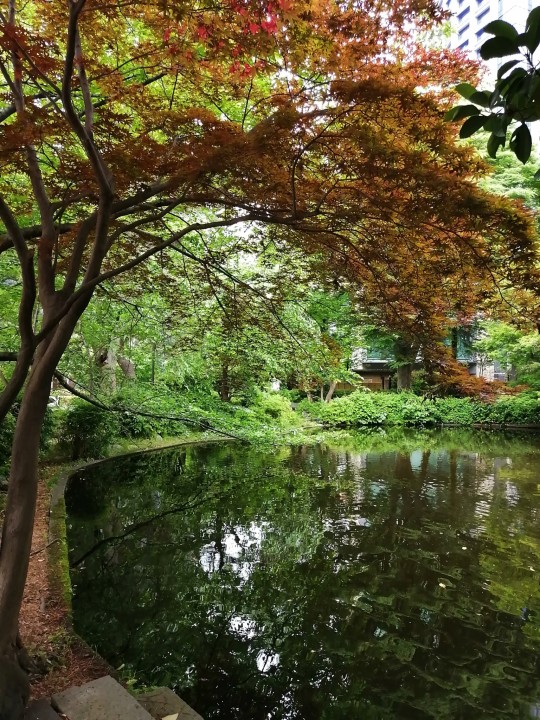
清水谷公園は、大久保利通が暗殺された「紀尾井坂の変」があった場所のすぐ近くで、哀悼碑があります。公園内には心字池も。秋になったら紅葉を見に来ようと思います。
#TOKYO GARDEN TERRACE KIOICHO#Shimizudani Park#tokyo#東京#akasaka#Toshimichi Okubo#kioicho#赤坂見附#紀尾井町#清水谷公園#大久保利通#note#雑記
0 notes
Photo
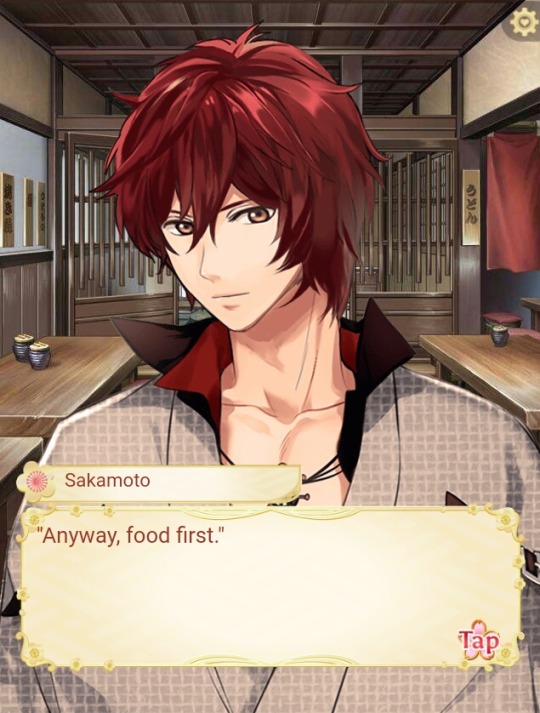
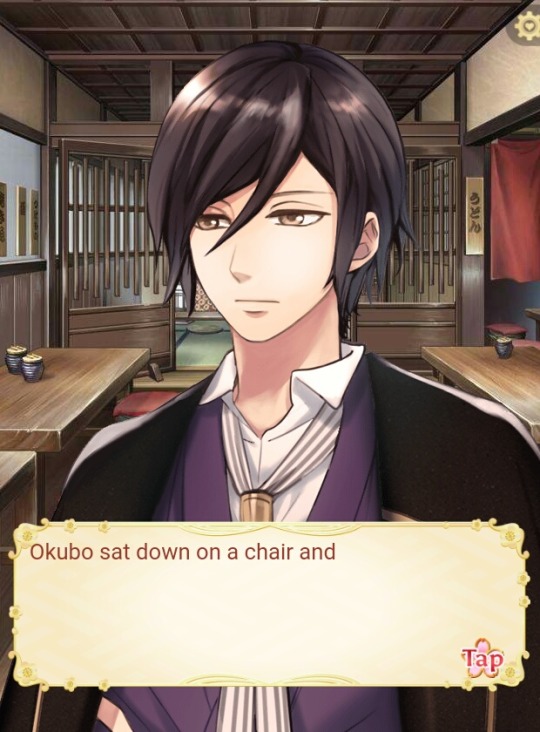
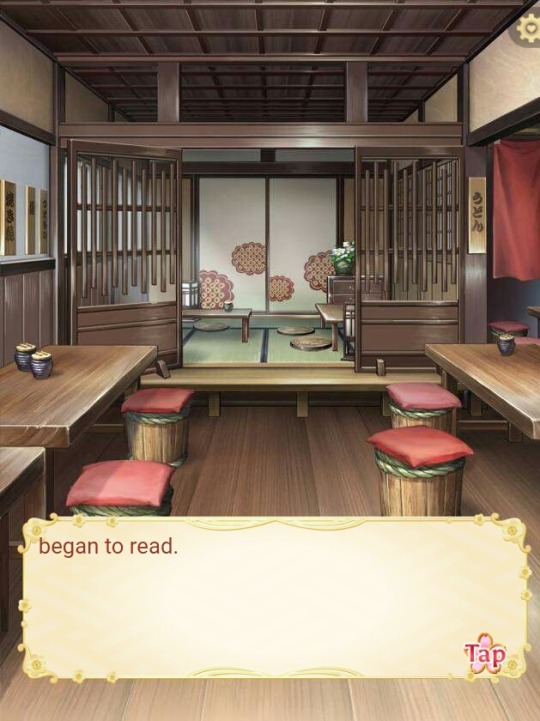
Men after my own heart. ♡
22 notes
·
View notes
Photo



Okubo xD
5 notes
·
View notes
Photo

It's our snarky bookworm, Okubo's birthday! (*゚。゚*)
Did you know he likes a nice cup of tea just much as he likes books!?
66 notes
·
View notes
Note
Do you have an issue with Noda's way of depicting Wilk's moral as gray like the fandom? Espacially with the reveal of the land deed that may ensure a future for Asirpa and the Ainu but wasn't part of his original plan
Hum...
I don't really know what the fandom is thinking in regard to Wilk so I can't really comment on it.
It's also worth to remember that Wilk discovered about the existance of the land deed only a short time before Tsurumi caused an argument between him and the other Ainu rebels that ended up with them killing each other.
Prior to that moment Wilk had no idea the land deed existed and therefore he couldn't include it in his original plan.
It's also worth to ponder if that land deed could be included in Wilk's plan after Wilk learnt of its existance. I mean, at first the land deed is presented as a cool thing.
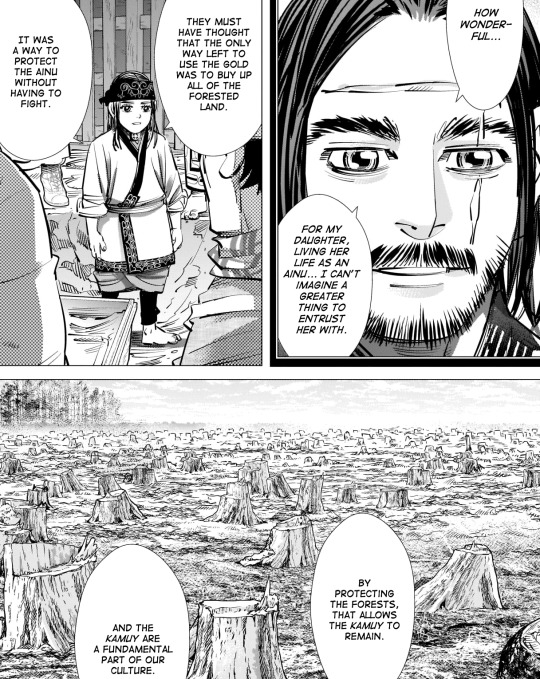

That land deed exists by 50 years. The Russian warship Kalevala incident whcih signed the end of the tractatives with the Russians is dated 1867.
Hijikata says the deed was signed while he was in the battle of Futamataguchi which took place on the fourth week of May 1869. The Republic of Ezo is disestablished on the 27th of June, 1869 and Enomoto has then the Meiji government accepted the contract.
We know the Ainu gave them half of the gold and retrieved the contract but now we should ask ourselves an important question: why no Ainu used the land deed to claim the land?
When Kimuspu shows it to Wilk we're in 1902, it means that the land deed remained hidden for 33 years despite Kimuspu being still alive and knowing of his existance.
If the problem was the gold, they could have said they spended it all on the land deed and use it. Yet they hid it along with the gold.
Kimuspu says everyone was killed by the Wen Kamuy.


Notice Kimuspu's expression when Wilk and the others see the land deed. It's creepy. We tend to consider the gold as the Wen Kamuy but the land deed was bought with the Wen Kamuy so it can be that it too is a Wen Kamuy.
The land deed is inconvenient for the Meiji government. In order not to honour it, they might have secretly killed Kimuspu's companions and forced him to live in hiding. So Kimuspu didn't try to use it or to have other Ainu use it and that's also why Wilk and the other Ainu didn't grab it and immediately tried to put it to use.
It's possible Ogata himself was sent there to retrieve the land deed as discreetly as possible or make sure no one were to find it, which is why he was fine with killing Wilk.
Of course things might change if Asirpa manages to put together a force that can oppose to the Meiji government. I mean, if Hijikata conqueers Hokkaido, the land deed can be negotiated with him and not with the Meiji government... or Hijikata can use it to give his claims of Hokkaido some legal ground.
in short the land deed couldn't figure in Wilk's previous plans because he had no idea it existed... but he could have ended up figuring in his final scheme as he might have hoped Asirpa, joining forces with Hijikata, would manage to put the land deed to good use.
But land deed put aside, I've no problems with Wilk having a gray morality, this makes him the same as everyone else in the cast, as well as human.
Humans tend to have a grey morality, pure white knights or pure black knights are more a thing of fairy tales.
It's narratively good that Wilk is a character with grey morality, it makes him real.
Of course the downside is that Wilk is no more a perfect idealistic hero.... or a cruel terrorist... but I think most of the fandom knew this already.
Wilk is mostly a man of his time and culture, with a vein of idealism mixed with a machiavellian and utilitaristic approach.
His idea that wolf culture is beautiful because he believes the wolves had killed a wolf because he had no place in their pack as he was sick, and that being a logical creature who cut away any excess kindness and has a functional efficency clearly tell us Wilk is not someone who's defending minorities because he believes everyone has a right to live and be protected.
Wilk's mindsetting is no better than the one of Japan and Russia who would decide minorities have no place in their country and sacrifice them.
He sets on protecting minorities not for some noble feeling but because he BELONGS to a minority and doesn't want to be judged the dischargeable spare.
In fact, when he decides to switch to Hokkaido he easily discharges the minorities on Karafuto even if he knew demanding from them to transfer in Hokkaido might be harmful for them.
In his group of three Wilk is the lest idealistic and the more prone to sacrifice others for his own goal.


Even Tsurumi realized with is the more cold blooded of the group, comparing him to Okubo.
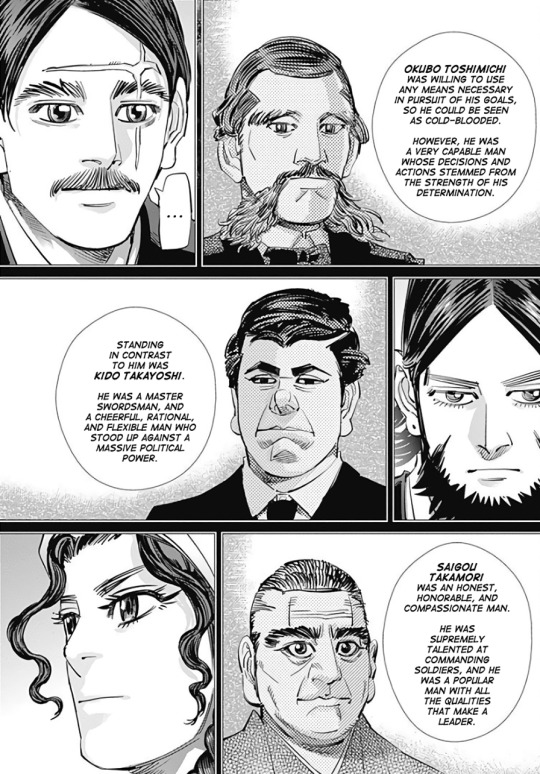
HTo Wilk's credit there's to say Wilk is also willing to sacrifice himself for his goal, we saw it when he took a personal risk to deliver the bomb when attempting the emperor's murder or when he skinned himself to hide.
Wilk is not the sort of man who solely sacrifices others for his goal, he also has no problems sacrificing himself.
But Wilk lacked Kiro's flexibility (Kiro originally was all for prioritizing the Karafuto minorities and, after trying to make a family in Hokkaido he decided to raise all the minorities to equal level) or Sofia's compassion (she has nothing on Hokkaido except the families and the dreams of Wilk and Kiro and to honour them she's willing to fight for Hokkaido as well).
I think a good part of Wilk's mistakes/problems steems exactly from his lack of flexibility from his determination in carrying on his idea, believing his idea is the best.
He's intelligent and probably this caused others to rely on him a lot and helped him to accomplish many things, giving him the feeling he isn't prone to be wrong, but this ended up on coming back to bite him.
He makes an enemy out of Kiroranke, when he could have tried to face him, reason things with him and smooth them over.
He thinks he can keep the Hokkaido Ainu partisans unite and working under him while not being fully honest with them (he doesn't tell them he's a Russian partisan who originally came there to get the Hokkaido Ainu gold for the Russian minorities) only because now he has wholeheartedly embraced their cause, with the result only a couple of words from Tsurumi cause the whole group to explode and people to start killing each other.
He assumes Asirpa will just blindly embrace his goals and methods and become the Ainu leader... and the Ainu will accept her, without realizing Asirpa is her own person and might not be interested in all this (though this was a mistake typical of his time period) and that for Hokkaido Ainu it was really difficult to accept a woman as a leader, never mention one so young.
And so on.
Wilk makes mistakes in good faith, he means well for the people he loves but ends up hurting them, he's human like each of us.
He lives in a world where his rights are stepped over and people often has no other way to be heard than taking up in arms because he doesn't have the options we have nowadays and can't vote for a new president or pacifically protest to have his right acknowledged so most of his choices wouldn't be right for our time period so of course we aren't meant to take his same choices but we should still look at him as a man of his world and time.
A man who wasn't perfect, but a man like us anyway, and that's this what makes Noda a great storyteller, that all his grey characters are ultimately like us, humans.
At least those are my two cents about this.
Thank you for your ask!
#Wilk#Asirpa#Kiroranke#Sofia#Ask#Mesira#Sukuta#Irenka#Ratci#Oskeporo#Enomoto Takeaki#Okubo Toshimichi#Kido Takayoshi#Saigou Takamori
18 notes
·
View notes
Photo

You call this unlucky?? LIES!! I feel pretty lucky to have gotten this response hehe.
6 notes
·
View notes
Text
Destined to Love Ikemen Notes!
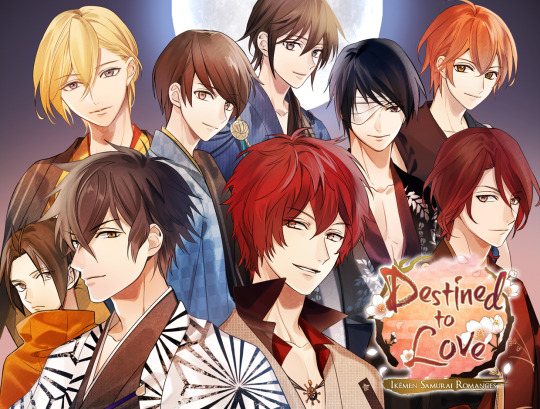
Prologue Here
Toshizo Hijikata
Main Route Chapter 1-5
Main Route Chapter 6-10
My Affection End
His Affection End
#cybird#ikemen series#destined to love#dtl#hijikata toshizo#kogoro katsura#saito hajime#sakamoto ryoma#kyo shinomiya#keiki#yoshinobu tokugawa#soji okita#kirisato#haru akira#shinsaku takasugi#susumu yamazaki#yukio shinonomiya#okubo toshimichi#isami kondo
13 notes
·
View notes
Photo







BREAKING NEWS: Katsura is such a mom.
#bahaha#i just found out about this through the newest grab bag#lololol#what a mom#i love it#😂❤#destined to love#dtl#kogoro katsura#ryoma sakamoto#toshimichi okubo
9 notes
·
View notes
Photo

🌸 Happy Valentine’s Day ❤ from Saito🐺Okubo, Hijikata🐢 and Yuki! I hope you enjoy these ccuuttee lil v-day greetings from the guys! Again I wanna thank @oh-my-otome cause she help me think of the lines! ( I’m not a funny person…i don’t have a good sense of humor lol) Enjoy! 🌸
#destined to love#dtl#dtl adventures#cybird#cyikemen#ikemen#ikemen samurai romances#otome game#kawaii#anime boys#cheesy valentines#hajime saito#toshimichi okubo#toshizo hijikata#yuki shinbone#yuki#chibi#drawing#art#anime drawing#anime art
32 notes
·
View notes
Text
i'm finally playing takasugi's route but all i can focus on is okubo when he appears ;-; i love him lots ;-;
#destined to love#dtl#dtl takasugi#shinsaku takasugi#dtl okubo#toshimichi okubo#when will i get to romance my book nerd :((((
0 notes